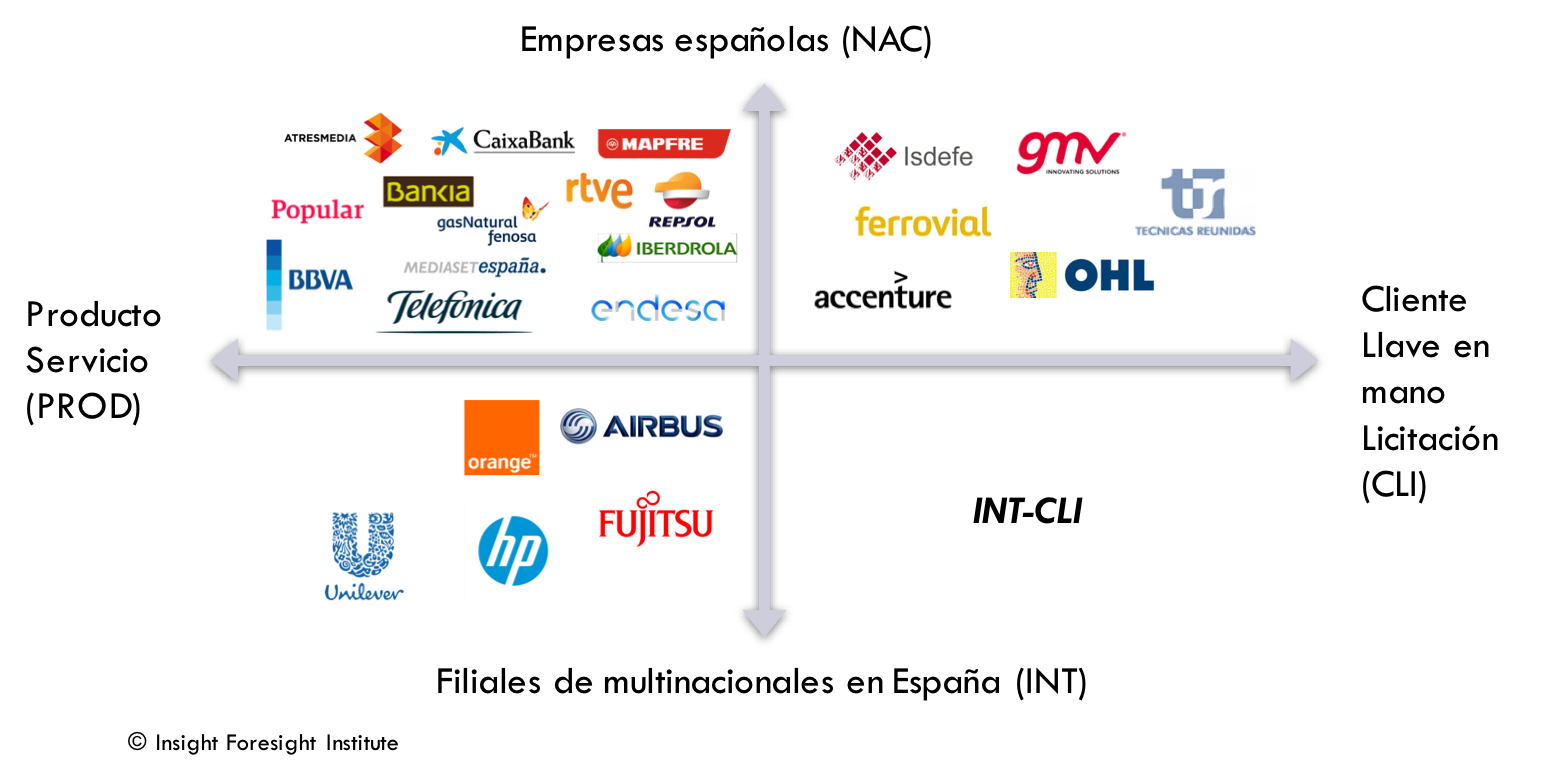 In response to the new business reality of the world VUCA (comes from the words in English: volatility, uncertainty, complexity and ambiguity), companies develop their activities, increasingly, in networks of collaborators and develop their own ecosystems to be able to innovate. an agile and connected way. These networks and ecosystems also open opportunities to improve foresight and technological intelligence both to identify and connect new signals and to interpret their relevance.
In response to the new business reality of the world VUCA (comes from the words in English: volatility, uncertainty, complexity and ambiguity), companies develop their activities, increasingly, in networks of collaborators and develop their own ecosystems to be able to innovate. an agile and connected way. These networks and ecosystems also open opportunities to improve foresight and technological intelligence both to identify and connect new signals and to interpret their relevance.
Technology foresight encompasses tools from automated technological surveillance to online collaboration for strategic management and analysis that enable much more informed decision-making. It also facilitates the innovation process of organizations, in the sense of offering information enriched with aspects that not only come from the domain or domains of the technology itself, but also from external factors such as competition, the environment, etc. This intelligence allows the informed and creative development of new solutions to the market.
Insight Foresight Institute is facing this challenge by offering executive and in-house training programs. The activities are developed in ‘partnership’ with our collaborators and clients, such as:
- Foundations
- Business schools and universities
- Business
- Public administrations.
Our approach is to support companies and their experts to develop their intelligence and innovation activities, and make the most of the ecosystem.
Attendants
- Managers and managers of development, innovation, information and technology.
- All those with interest in the application of technological intelligence in their ecosystem.
Objectives
Eminently practical training program to:
- Know the basic elements and usefulness of technological intelligence for digital transformation.
- Know and share experiences, how to value the ecosystem through technological tools and knowledge of various actors.
- Inform the different actors of innovation ecosystems of the great potential and impact of intelligence tools for decision-making in their organizations.
- Develod ideas and creative plans for new solutions to the market.
- Plan actions that can be carried out to offer intelligence services in the ecosystem network.
Concept
- Seminars (face-to-face classes). Exhibition of theoretical concepts.
- Know and pilot the methods and tools.
- Online co-creation. Work on the online platform with the tools, case studies and support material, in order to co-create strategic plans.
- Personalized and confidential.
As a general rule we recommend 4 modules distributed over 4 weeks. Each module consists of 1 day of classroom (seminar / workshop) of 6 hours, which is accompanied by work activities, both individual and group, supported by online platform (4 hours / module / week).
It is advisable to leave several days between the modules that allow:
- Learning through reading and exercises
- Involvement of colleagues and organization
We are also flexible to co-design the program to specific circumstances.
Contents
(Week 1) Horizon scanning in the ecosystem. In the first week of the course will be carried out the detection and management of ideas or (early) signs of innovation in the sector in question.
(Week 2) Anticipate in the ecosystem. Using the ideas obtained in the first week, a prospective exercise will be carried out to identify success scenarios, which will be completed with roadmaps of the solutions found for their implementation.
(Week 3) Act in the ecosystem. With the selected solutions, a deep and specific analysis will be carried out to identify markets, partners and final concretion of action plans.
(Week 4) Take to practice. In this session, each participant (organization) will present their results (with the possibility of carrying it out in private tutoring sessions that members of your organization can attend), for the evaluation of their execution.
Participants will have the possibility to hire a follow-up service, after the training, in order to facilitate the development of their solutions and / or intelligence systems.
For more information: info@if-institute.org
Also know about other IFI courses.

 Platforms play a fundamental role in digital ecosystems; they are the “medium” in which these ecosystems are developed through the interactions between users, developers and other stakeholders. The irruption of platforms and their associated digital ecosystems generates profound changes in the economy.
Platforms play a fundamental role in digital ecosystems; they are the “medium” in which these ecosystems are developed through the interactions between users, developers and other stakeholders. The irruption of platforms and their associated digital ecosystems generates profound changes in the economy.
